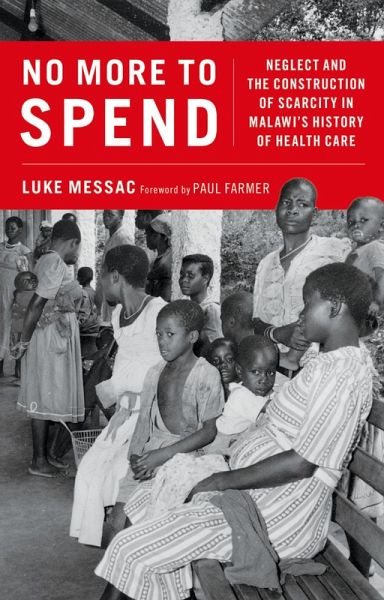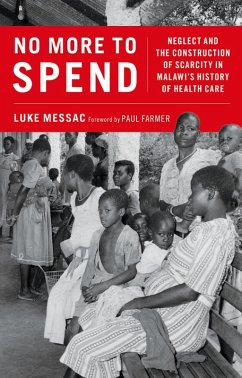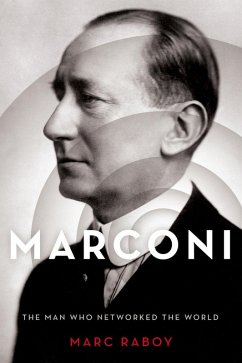
No More to Spend (eBook, ePUB)
Neglect and the Construction of Scarcity in Malawi's History of Health Care
Versandkostenfrei!
Sofort per Download lieferbar
16,95 €
inkl. MwSt.
Weitere Ausgaben:

PAYBACK Punkte
8 °P sammeln!
Dismal spending on government health services is often considered a necessary consequence of a low per-capita GDP, but are poor patients in poor countries really fated to be denied the fruits of modern medicine? In many countries, officials speak of proper health care as a luxury, and convincing politicians to ensure citizens have access to quality health services is a constant struggle. Yet, in many of the poorest nations, health care has long received a tiny share of public spending. Colonial and postcolonial governments alike have used political, rhetorical, and even martial campaigns to re...
Dismal spending on government health services is often considered a necessary consequence of a low per-capita GDP, but are poor patients in poor countries really fated to be denied the fruits of modern medicine? In many countries, officials speak of proper health care as a luxury, and convincing politicians to ensure citizens have access to quality health services is a constant struggle. Yet, in many of the poorest nations, health care has long received a tiny share of public spending. Colonial and postcolonial governments alike have used political, rhetorical, and even martial campaigns to rebuff demands by patients and health professionals for improved medical provision, even when more funds were available. No More to Spend challenges the inevitability of inadequate social services in twentieth-century Africa, focusing on the political history of Malawi. Using the stories of doctors, patients, and political leaders, Luke Messac demonstrates how both colonial and postcolonial administrations in this nation used claims of scarcity to justify the poor state of health care. During periods of burgeoning global discourse on welfare and social protection, forestalling improvements in health care required varied forms of rationalization and denial. Calls for better medical care compelled governments, like that of Malawi, to either increase public health spending or offer reasons for their inaction. Because medical care is still sparse in many regions in Africa, the recurring tactics for prolonged neglect have important implications for global health today.
Dieser Download kann aus rechtlichen Gründen nur mit Rechnungsadresse in A, B, BG, CY, CZ, D, DK, EW, E, FIN, F, GR, HR, H, IRL, I, LT, L, LR, M, NL, PL, P, R, S, SLO, SK ausgeliefert werden.













